Iraqi party leader claims foreign-linked vote irregularities, issues warning
One of the leaders of Iraq's Fatah (Conquest) Alliance has blasted foreign-linked irregularities and fraudulence in the country’s parliamentary elections, warning that the results have to be annulled and and new elections held if demands of the public are not fulfilled.
Mohammad al-Rabiei, who is also a spokesperson for the al-Sadiqoun parliamentary bloc affiliated with Iraq's Asa'ib Ahl al-Haq movement, made the criticism in an interview with the Lebanese al-Mayadeen television channel on Thursday.
Rabiei said the Fatah Alliance had before the October 10 vote alerted the Iraqi Independent High Electoral Commission (IHEC) and the presidency to the existence of a “large gap” in the voting mechanism, and the panel had promised to work on resolving it.
“The suspicious events on the polling day and the obvious confusion following the poor performance of the IHEC revealed the existence of a massive manipulation of the election outcome, which led to the emergence of illogical results incompatible with the popular suffrage,” he told al-Mayadeen.
Rabiei rebuked the West and its regional allies for instigating chaos in Iraq, saying the aim of their plot against the recent elections was to eliminate the Iraqi resistance groups from their country’s political scene.
“The ominous triad of the United States, Britain and Israel, which does not want stability or security for Iraq, worked through Emirati funds and groups to remove the forces that rejected Western hegemony and stood as an impenetrable fortress in the face of normalization deal, occupation and disintegration,” the Iraqi official underlined.
Pointing to Western attempts to “break Iraq’s back” by weakening and dismantling the anti-terror Popular Mobilization Units (PMU), known as Hashd al-Sha'abi, Rabiei said the "dangerous manipulation" of votes which aimed to prevent certain candidates from reaching Parliament prompted the Iraqi masses to come out in the capital Baghdad and a number of provinces to express their anger over the results.
“In the absence of accountability, the demands of Iraqi people and a number of Kurdish and Sunni groups can lead to the demand for the annulment of the results and a re-election if that is the only way to restore the right to the people and to remove the manipulative hands in the current results," Rabiei warned.
The Iraqi capital and a number of major cities have been tense over the past few days as several political factions and their supporters in the Arab country have rejected the preliminary results as "fraudulent."
Tuesday was the last day to file complaints and appeals against the election results, with the IHEC having reportedly received about 1,400 appeals.
Two separate statements issued on Wednesday by Hadi al-Ameri, the leader of Fatah, and Qais al-Khazali, leader of Asa'ib Ahl al-Haq, said they would be waiting for the results of appeals submitted to the commission.
A total of 329 seats were up for grabs in the October election and more than 3,240 candidates were running, including 950 women.
According to the results, the Fatah Alliance won 14 seats in the October 10 elections after taking 48 seats in the 2018 vote.
A count based on initial results from several provinces plus Baghdad, verified by local government officials, suggested that the Sairoon Alliance, led by influential Shia Muslim cleric Muqtada al-Sadr, had won more than 70 seats, which, if confirmed, could give him considerable influence in forming a government.
Kurdish parties won 61 seats, including 32 for the Kurdistan Democratic Party, which dominates the government of the semi-autonomous Kurdish region of Iraq, and 15 for its rival Patriotic Union of Kurdistan party.
Sunni Parliament speaker Mohammed al-Halbousi’s Taqaddum coalition won 38 seats, Iraq’s state news agency reported, making it the second largest in parliament.
The State of Law Alliance, headed by former Prime Minister Nouri al-Maliki, who led Iraq from 2006 to 2014, came third overall with 37.
Iraqi Shia political parties won fewer seats than in the last election in 2018, according to the results and local officials.
The elections were originally planned to be held in 2022, but the date was brought forward in response to a mass protest movement that broke out in 2019 to call for economic reforms, better public services, and an effective fight against unemployment and corruption in state institutions.
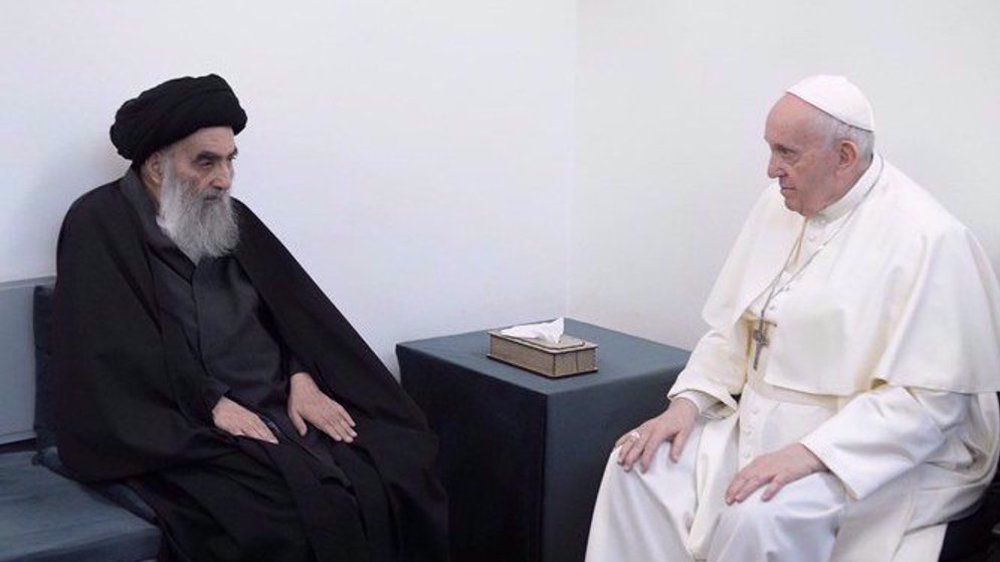
Ayatollah Sistani offers condolences on passing of Pope, hails his role in promoting peace
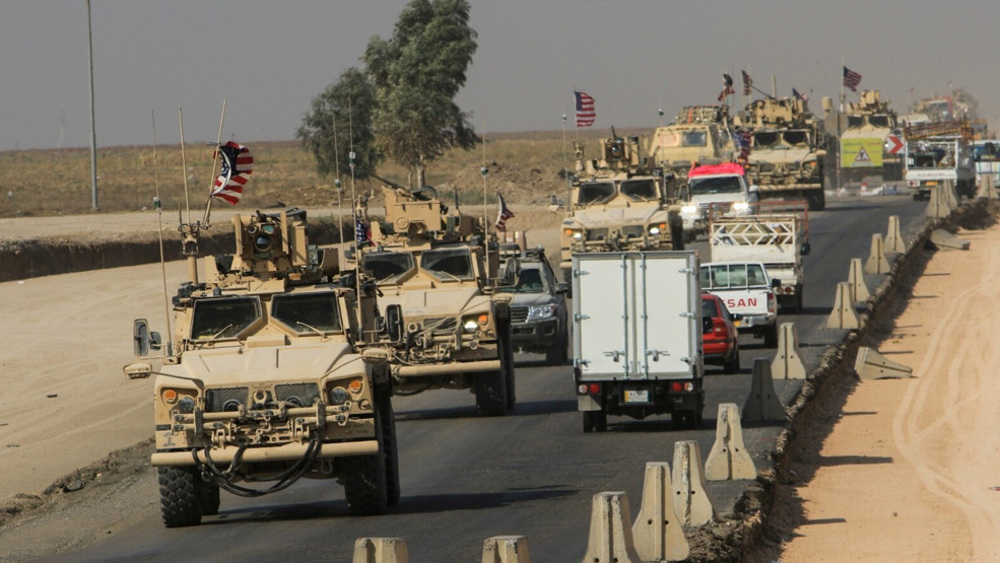
US arms convoys enter Iraqi Ain al-Asad base from Syria: Report
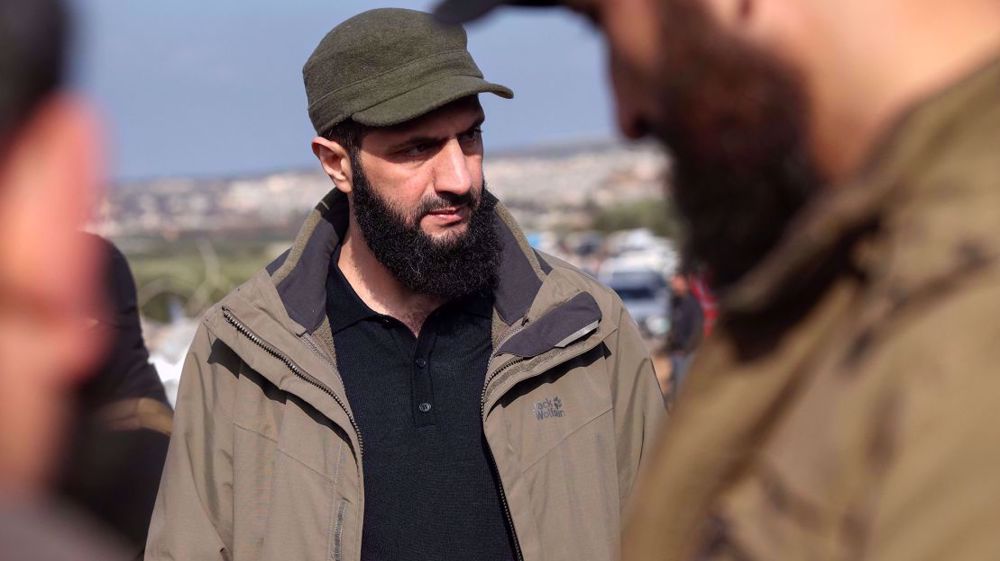
Syria’s self-proclaimed president can be arrested if he visits Baghdad: Iraqi figure
Global reactions, offers of assistance pour in after huge deadly explosion in S Iran
Iran pres. stresses collective, effective fight against terrorism in calls with India, Pakistan PMs
Iran declares holiday in Bandar Abbas port as fire still raging
VIDEO | NY protesters demand end to genocide on Global Day for Gaza
VIDEO | Pope Francis funeral mass held in St. Peter's Square
VIDEO | UK education activists focus on decolonization
Iran supports any measure to strengthen peace, tranquility: Pezeshkian
Iran, Russia agree to transfer gas via Azerbaijan: Minister


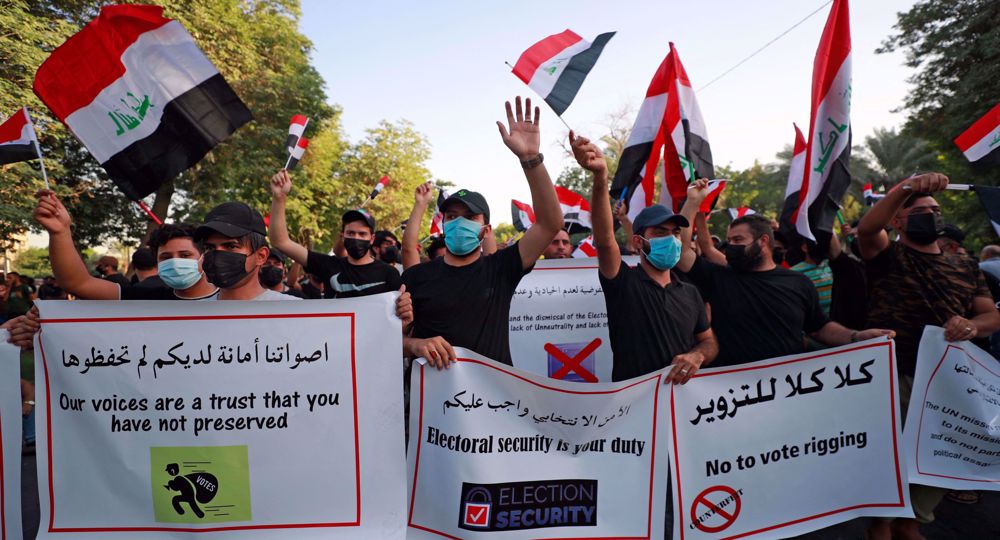
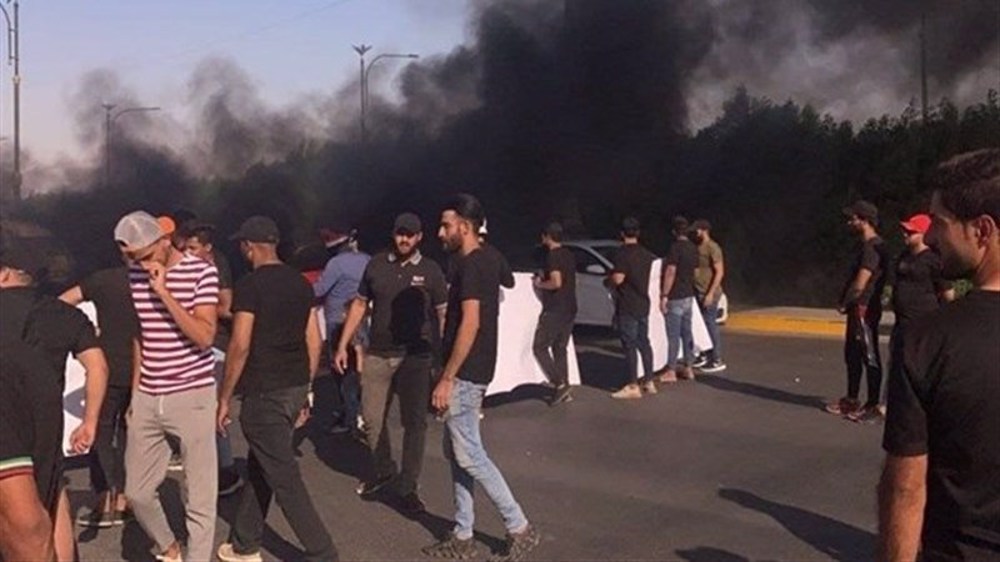
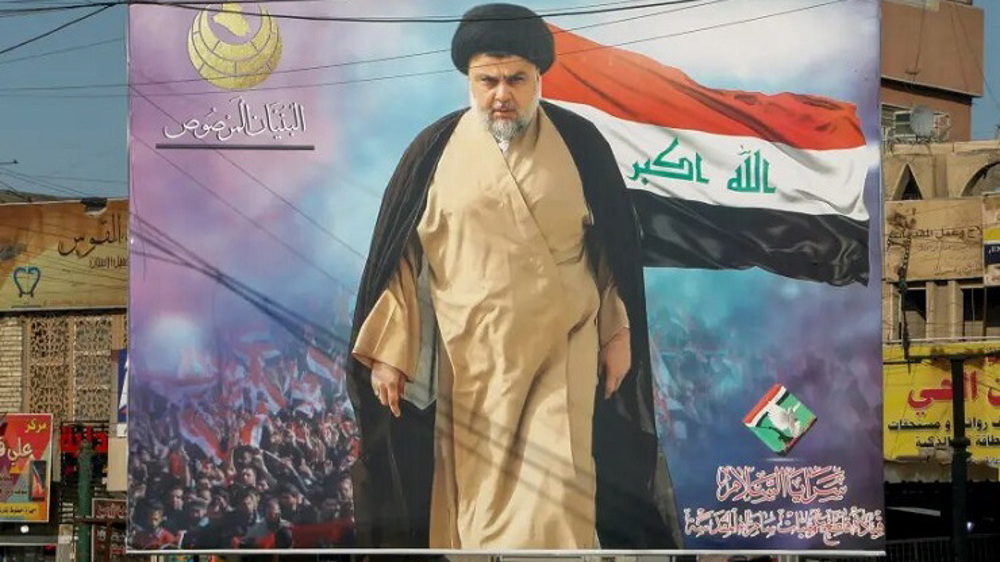




 This makes it easy to access the Press TV website
This makes it easy to access the Press TV website